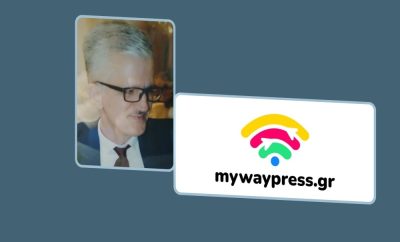
The Genius of Thinking For Yourself
Prior causes, events, and experiences have shaped who you are today — your ideas, assumptions, perceptions, thinking patterns, worldviews, and mental models.
Who you are is a result of your interaction with many other people — their values, ideals, ethics, beliefs, assumptions, and habits.
Who you are depends on the knowledge around you and the people who influence your thoughts.
The world is a massive interdependence of ideologies, thoughts, actions, and behaviors — for good or bad. The many differences in knowledge have influenced who we have become and what we are becoming.
You are who you are today because of other people’s thoughts, opinions, beliefs, and thinking processes.
Brilliant minds and great thinkers learned from those before them. As they gain experience, they look for existing knowledge to validate their assumptions or shape their theories.
Plato learned from Socrates. Aristotle’s learned from Plato. Einstein learned from Heinrich Friedrich Weber and Alfred Kleiner. Dennis W. Sciama was the Ph.D. supervisor to Stephen Hawking.
But they all built on their own idea and curiosities, asked better questions, and wrote extensively about ideas they cared about. Great minds learn from other brilliant minds, but they go on to develop their own unique ideas.
No single thinker, philosopher, or scientist has it all figured out. They are all learning. And they are influencing many of us than we think.
But in the end, you still have the right to build and develop your own ideas. You can dig deeper, improve on what you learn, or do more research about topics you care about to deepen your perspective about exciting topics.
The interdependence of thought
A man has free choice to the extent that he is rational. — Thomas Aquinas
The sources of our thoughts, intentions, reasoning, and choices are varied. No idea, reasoning, explanation flourishes on its own.
“Genuinely independent thought is virtually impossible. The independent thinking we take such pride in is, in reality, illusion,” argues Amanda Gore.
Our beliefs and ideas are part of a chain of thoughts. But everyone can develop a unique chain of thinking they can call their own. But no idea can be truly original.
“Anything that gives us new knowledge gives us an opportunity to be more rational,” says Herbert A. Simon.
There is no single source of rational, objective, and intelligent thinking. People build on what they know and connect ideas better to define their own true north.
Aristotle said, “It is the mark of an educated mind to be able to entertain a thought without accepting it.”
Independent thinking is the mark of a true free thinker. “Independent thinking is the process of making sense of the world based on your own observations and experiences rather than depending on the word of others,” writes the University of Alabama.
Thinking independently means you are not afraid to form your own ideas and think for yourself. It means you are curious about difficult questions. Free thinkers are not satisfied by apparent answers.
They prefer to ask more challenging and more profound questions. And it also means you value intellectual curiosity. Self-learning is vital for independent thinkers.
The mind can easily be chained to an ideology for a very long time. To overcome this blind spot, independent thinkers look for evidence that can prove their assumptions wrong.
Thinking for yourself means expanding your sources of knowledge and honing your curiosity.
Paul Graham explains, “In the most independent-minded people, the desire not to be told what to think is a positive force. It’s not mere skepticism, but an active delight in ideas that subvert the conventional wisdom, the more counterintuitive the better.”
Independent thinkers are rational skeptics. They choose to challenge common wisdom to find better knowledge or ideas many people usually ignore.
Einstein, Da Vinci, Marie Currie, and Stephen Hawking maintained their intellectual curiosity for years to find epic ideas that changed how we think or perceive specific thoughts.
“Think before you speak. Read before you think.” Fran Lebowitz said.
If you are curious enough about things and ideas you care about, invest time to explore them more.
The more you reason about them and expose yourself to as many sources of knowledge as possible, the more insightful your opinions and thoughts about them will be.
Independent thinking can help you make sense of a rapidly changing world. It can help you lead a more curious and interesting life.
“You become interesting by following your own interests, going deeper down the rabbit hole than anyone else, and surfacing something new for the rest of us.” Sahil Lavingia once said.
Choose to think for yourself (your personal growth depends on it) and remember to share what you find with the world. It’s the authentic thing to do.
Συνέχεια εδώ
Πηγή: postanly.substack.com




